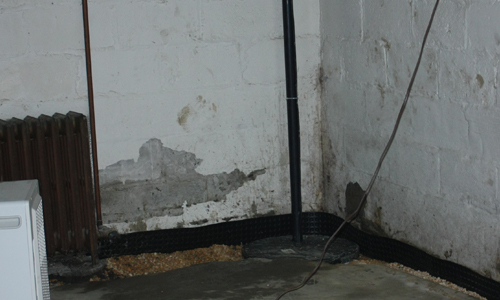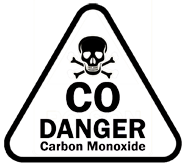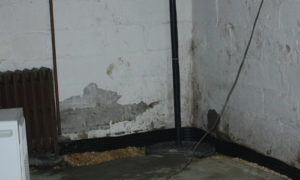
April showers not only bring May flowers they also can create wet basements. Do you have a basement that leaks water through its block walls right after heavy spring and summer rain storms? Does water leak through your basement walls at any time? Usually, a musty mildew odor resulting from the dampness occurs. Does your basement smell? Find out some important information about what a wet basement can do to your home and health if its left ignored and not fixed fast.
Why are wet basements a problem?
It’s not just about having a finished basement. If you want to use your basement for storage, work area, laundry, etc. having moisture poses risks. Things that you store in your basement (even for a short time) take on that “basement smell.” Your stuff also gets water damage when it rains. Not to mention if you have invested hundreds or thousands of dollars in tools, the last thing you want to do is leave them rusting in your basement workshop. Moisture kills power tools.
And it is not good for appliances like washers, dryers, water heaters, furnaces, boilers, or any other appliance you might have in your basement.
And there are the health risks. But I’ll get to that in a minute.
Foundation damage
If you have water continually (even periodically) seeping through your basement walls, the foundation will eventually crack. Think about it, your house sits on that foundation. Everything above it can be damaged.
Here is a block wall that has water flowing through its foundation and upper courses.
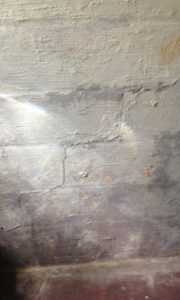
As you can see waterproofing paint applied to the block wall has no effect of stopping the water from flowing through it. So what happened was, this homeowner spent money, time, and aggravation trying to fix it their self. It’s just so much easier to have it done right once.
How can water do this?
The block separated from its mortar joint as a result of expansion and contraction. The water had accumulated underground around the concrete footer which is the main support for the home. The water at some point in time had risen to the levels of freezing which cracked the mortar joints of the masonry blocks. If left ignored the home eventually will have settlement problems which will cost a lot more to fix versus an installation of a French drain.
About those health risks…
Mold and mildew are fungi – quite simply a microscope organism that grows and thrives anywhere there is a wet and moist environment. Water leaking through a basement wall is a perfect place for mold to grow. If it’s not corrected quickly, any of the following health problems also can occur besides structural settlement, and they are:
- Respiratory problems
- Nasal and sinus congestion or dry, hacking cough
- Eye irritation – burning, watery, redness
- Nose or throat irritation – sneezing fits, bloody noses
- Skin irritations – rashes or hives
- Nervous system – headaches, memory loss, mood changes
- Aches and pains
Mold is a serious problem if left alone to grow take a look at this Fema brochure.
What’s basement waterproofing?
Basement waterproofing is the installation and design of materials used to stop water from penetrating through the basement foundation of a house or building. It’s used in existing structures and also in new construction. Methods can vary, but customarily (PVC) Polyvinyl Chloride perforated pipe laid in a gravel bed is preferred. The piping system evolved from a farmer named Henry Flagg French, he called it the cellar drain, but everyone knows it today as the French drain.
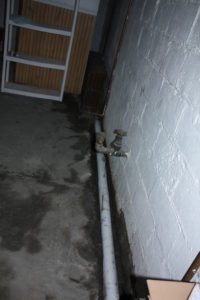
Dry it up
If you have water seeping through your basement walls or your basement has that “basement smell,” call Vince he’s experienced with basement waterproofing solutions in Pittsburgh. Click here to schedule a free estimate with Vince.

